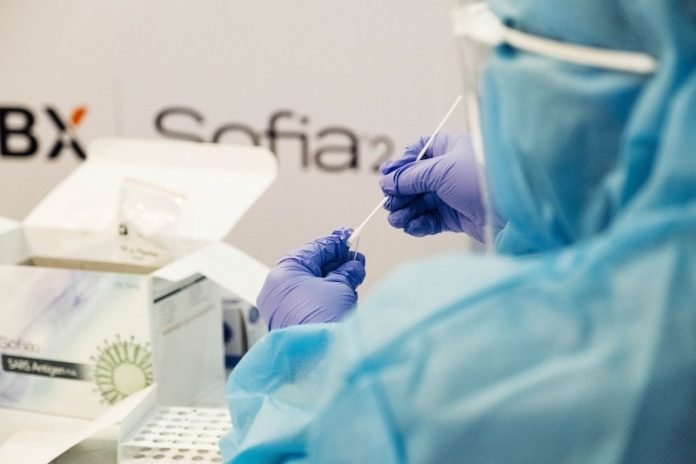
Scientists from Rutgers University have developed a lab test that can quickly and easily identify which variant of the virus causing COVID-19 has infected a person.
The research is published in The Journal of Molecular Diagnostic and was conducted by Sanjay Tyagi et al.
Details of the PCR (polymerase chain reaction) test includes directions for how to employ so-called “molecular beacons,” a powerful technique that seeks out molecules that carry genetic information to make proteins.
Most PCR COVID-19 tests taken by patients—often offered via drive-through pharmacy windows or mail-in packets—only detect the presence of the virus and don’t identify any particular strain.
If public health experts want to obtain data on variants to track how and if the virus is mutating, they generally must physically visit the areas where outbreaks are known to have occurred, obtain samples, and then run an extremely complex sequencing process.
The Rutgers new test could be used in concert with any COVID PCR test, yielding more specific information.
The scientists want to share the technology with other labs and testing companies so that variant information, often crucial when coordinating the use of treatments such as monoclonal antibodies, is readily available.
The team says the test will enable more accurate treatment for severe COVID since a rapid PCR test to identify the variants can now be carried out in the local hospital setting.
PCR tests employ a technique known as the polymerase chain reaction, a widely used method that allows researchers to take a tiny sample of DNA and amplify it to a large enough amount so that it can be studied.
The molecular beacon technology involves microscopic, biochemical probes so precise they can distinguish among different gene-sequence targets that differ by only a single chemical base.
Once the probes latch on to the target, they become fluorescent—serving as beacons for scientists scouring the genetic soup of viral particles.
Several COVID-focused PCR tests have been developed earlier, but they target only single mutations in the “spike” protein, which leads the virus’s attack on human cells, and can’t discriminate between many variants circulating in the population.
The Rutgers test detects eight different mutations in the spike protein—ones that have been demonstrated to increase the transmissibility of the virus and evade the human body’s immune defenses.
Because such mutations are likely to be conserved in new emerging variants, the scientists expect the test will be useful for detecting new variants that arise from a new combination of mutations.
If you care about COVID, please read studies about new treatment option for COVID-19, and this new oral drug may prevent death from COVID-19.
For more information about COVID, please see recent studies about how finger length could help predict severe COVID-19, and results showing a universal antibody therapy for all COVID-19 variants.
Copyright © 2022 Knowridge Science Report. All rights reserved.



